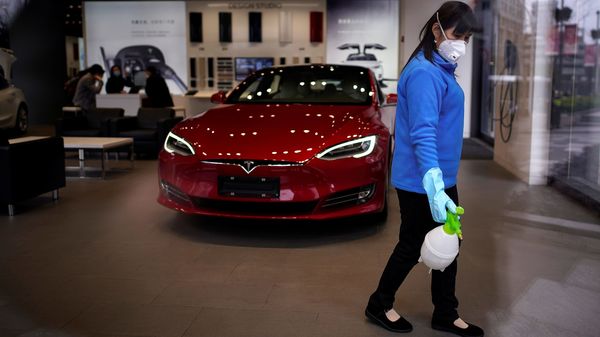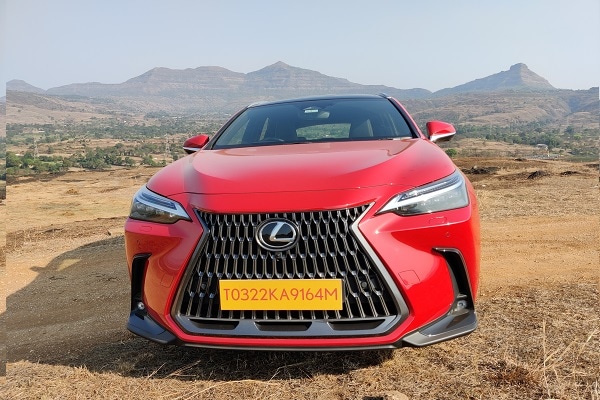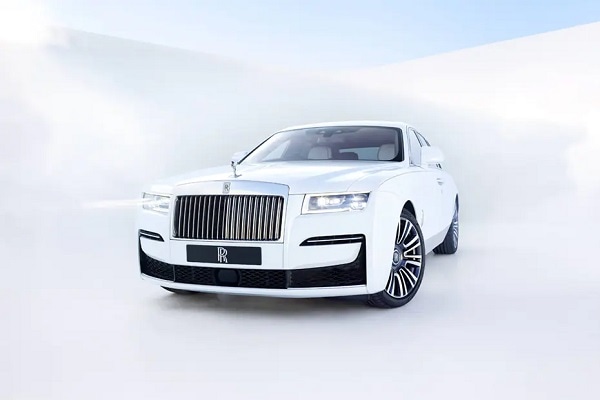Auto industry’s coronavirus fears shifting from supply to demand


Automakers and suppliers across the globe have been scrambling to keep production going after the coronavirus shuttered parts plants across China. Now a bigger fear is emerging: Consumers may be in no mood to buy cars and trucks.
With more than 100,000 cases worldwide and new ones cropping up daily in American cities, analysts are paring back expectations for another year of near-17 million sales in the U.S. LMC Automotive cut its 2020 estimate by 300,000 units to 16.5 million, which would be the lowest for the industry since 2014. Worldwide, the researcher docked 3.5 million units from its forecast, more than half of which is attributed to China.
Also check these Vehicles
“That was a first blush at things as we model what we’ve been seeing" in key global markets, said Jeff Schuster, senior vice president of forecasting at LMC. “It could clearly get much worse than that."
As the epidemic that emerged from China threatens to become a worldwide pandemic that could wipe as much as $2.7 trillion from global gross domestic product, governments are taking increasingly aggressive action to contain the virus. Italy on Sunday announced travel restrictions for about a quarter of the population concentrated in its most productive northern regions, while U.S. President Donald Trump’s administration is drafting measures to blunt the economic fallout.
Demand Crunch?
Plunging U.S. stocks triggered a temporary halt in trading early Monday, and the S&P 500 is down about 19% from its Feb. 19 all-time high, threatening to end the record-long bull market that began 11 years ago. Fallout from the virus outbreak also raises the risk of the U.S. and Europe entering a technical recession in the first half of the year.
“The real fear and concern is if we end up with a demand crunch in the U.S.," said Kristin Dziczek, vice president of the labor and economics group at the Center for Automotive Research. “Are people going to be buying, or be nervous because their 401(k) will just have taken a huge hit?"
Among the few automotive stocks that rose Monday in New York were O’Reilly Automotive Inc. and AutoZone Inc., two retailers of replacement parts, which may see demand grow if car owners delay purchases of new vehicles.
The seasonally adjusted annualized rate of vehicle sales was about 16.8 million in February, according to Cox Automotive, surpassing its 16.6 million estimate. However, the “real test" will be in March, as the stock market decline and uncertainty about the virus “are bound to have some impact on vehicle sales," Cox analysts wrote on March 3.
Suppliers Cut Guidance
Some of the biggest components manufacturers already are signaling trouble is ahead for the industry. German parts maker Continental AG last week blamed the coronavirus outbreak for a cut to its full-year earnings guidance. Aptiv Plc, a major supplier of automotive software and wire harnesses, trimmed its first-quarter income estimates for the same reason.
Automakers are racing to keep production lines running as virus fears threaten to crimp supplies of key parts. But if car buyers steer clear of showrooms -- either out of fear of being infected or concern about their personal finances -- that could have a more lasting negative impact.
“Demand can go to nothing in a hurry, as China has proven," Michael Dunne, chief executive officer of consultant ZoZo Go, said in a newsletter Monday, referring to the approximately 80% sales plunge the world’s biggest market saw last month. “People are simply not thinking about big ticket items."
Alex Calderone, managing director at the financial advisory firm and litigation consultant Calderone Advisory Group, spent last week canvassing his auto-supplier clients to gauge the risk of production shutdowns because of parts shortages in China. Reassured by their logistical expertise, he walked away less concerned about supply-chain risks than of what the virus could mean for consumer sentiment.
“If there’s going to be an economic shock that roils the auto industry, it’s going to come from changes to consumer psychology and confidence and spending patterns," he said. “It’s the social-distancing measures that have the potential to be the most dangerous to the economy."








 40 kWh
40 kWh 150 Km
150 Km
 3996.0 cc
3996.0 cc Petrol
Petrol














